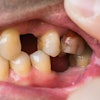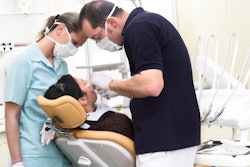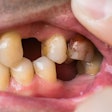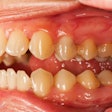
Older adults in the U.S. who have spent time in prison may face an elevated risk of accessing dental care, highlighting the need to make affordable care more accessible. The research was published in the American Journal of Preventative Medicine.
Furthermore, this issue may be linked to the broader effects of incarceration on wealth accumulation and dental insurance access, the authors wrote.
"The findings revealed a direct association between prior incarceration and a lower likelihood of dental care use among a nationally representative sample of community-dwelling adults aged 55 and older in the United States," wrote the authors, led by Alexander Testa, PhD, of the University of Texas Health Science Center at Houston (Am J Prev Med, July 1, 2024).
The study used data from the Health and Retirement Study, a representative sample of community-dwelling adults age 55 and older in the U.S., collected in 2012 and 2014. Multivariable logistic regression was used to assess the relationship between a history of incarceration and dental care access. Of the 11,730 participants, 10,962 had never been in jail and 758 had a history of incarceration, according to the study.
Among all respondents, nearly 70% had received dental care in the previous two years, and 7% had a history of incarceration. Among those previously incarcerated, approximately 51% had visited a dentist compared to 70% who had never been in the correctional system, the authors wrote.
Furthermore, logistic regression analyses showed that prior incarceration was associated with lower odds of recent dental care use (adjusted odds ratio [aOR] = 0.748; 95% confidence interval [CI] = 0.624, 0.896). Additionally, those who were incarcerated for more than one month had lower odds of recent dental care use (aOR = 0.600; 95% CI = 0.418, 0.860), they wrote.
Wealth and dental insurance suggested much of the association between longer incarceration periods and dental care use. Higher wealth levels and having dental insurance explained about 91% of the correlation between incarceration and dental care use, the authors wrote. However, the study had shortcomings, including that incarceration information was limited, like the time of release.
Future research should focus on collecting multilevel longitudinal data to analyze dental care patterns across different stages of life to better understand how dental care usage changes following incarceration, the authors added.
"Considering the importance of dental care for good oral and overall health, the findings suggest the urgent need to improve dental care access among older, formerly incarcerated adults in the United States," they concluded.




















